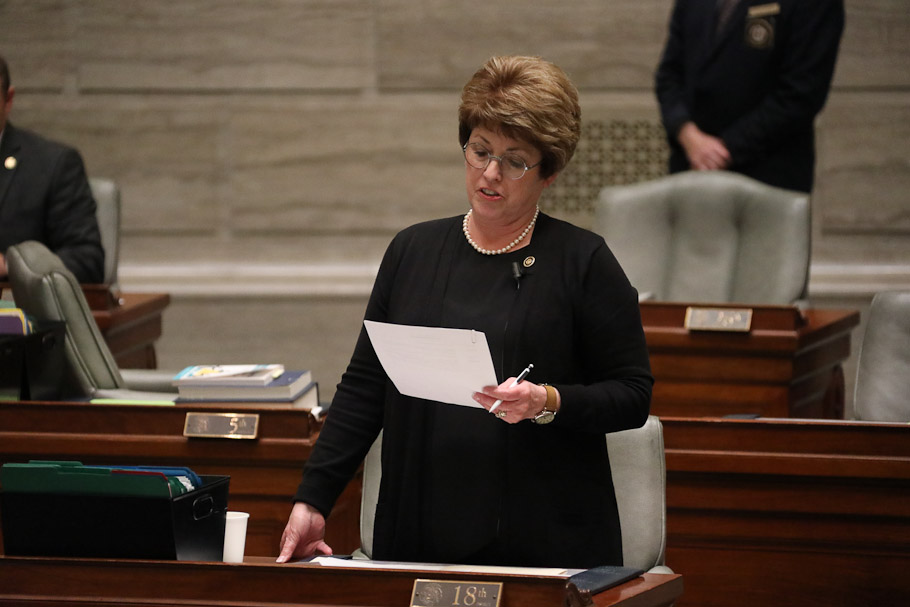As elected officials vacate Jefferson City and return to their families and jobs, The Missouri Times is taking a look at legislative priorities that may headline next year’s session. The “Next Steps” series will showcase certain legislative issues and take a look ahead at what could come next.
Many students struggled to adapt when schools pivoted to alternate learning methods and new procedures amid the COVID-19 pandemic last year, including those with disabilities. While some families faced conflicts with their school districts over the transition, many didn’t have the financial resources to take the issue to the legal system.
Sen. Cindy O’Laughlin, chair of the Senate Education Committee, said several constituents came to her when in-person learning ground to a halt: Some special education students were without full-time assistance for the first time in their school career while others struggled to adjust to virtual instruction.
O’Laughlin is evaluating legislative options to give parents of students under an Individual Educational Program (which outlines special education instruction needs) or a 504 plan (which ensures accommodations for students with disabilities) a route to pursue when they feel a school district has violated those programs.
One option under consideration would create a state fund to help parents access ombudsmen, representatives for students and their families who aren’t affiliated with the school district. She said there are independent organizations and consultants active in Missouri that offer those services. Creating a state fund to help families retain their services could be a boon for struggling families, she said.
“If you have a school system and a school board that is really dialed-in to what’s happening in the school, then when a parent has an issue, they can go to that school board and maybe get it resolved. We don’t have a lot of those, at least in my experience,” O’Laughlin told The Missouri Times. “Parents are left with no options; if they think they have a legitimate problem, there’s usually nowhere to turn.”
Another solution could be in the form of a new office with a team of ombudsmen working in different school districts throughout the state, O’Laughlin, a Republican who represents the northeastern corner of Missouri, suggested.
Missouri’s Department of Health and Senior Services (DHSS) offers an ombudsman program for nursing home residents. Similar state programs are available for the general populace of private schools and universities but not for public school students with special needs.
“It’s not right to have a billion-dollar industry and have the taxpayers — these parents — be unable to get a resolution to issues like this,” O’Laughlin said. “Many times, educational institutions sort of throw up a wall and for the parents that end up on the other side of that wall, they have a hard time getting across it. There needs to be some way of sorting through these problems and advocating for the students.”
O’Laughlin said she hopes to get the issue to the floor with support from lawmakers on both sides of the aisle no matter what form it ultimately takes. The Education Committee is willing to work together on issues impacting Missouri children despite the “minefield” legislators had to navigate with education bills, she said.
“We’re going to be facing a long session as it is with so many people running for so many different things, and invariably, that gets into the mix,” O’Laughlin said. “I’d like to find a path where we can come together on this and other issues dealing with education and narrow it down to make sure we’ve vetted it with people who are interested and that we have support. It may be a lofty goal, but I hope we can make it happen.”



























